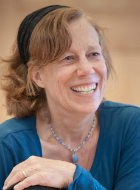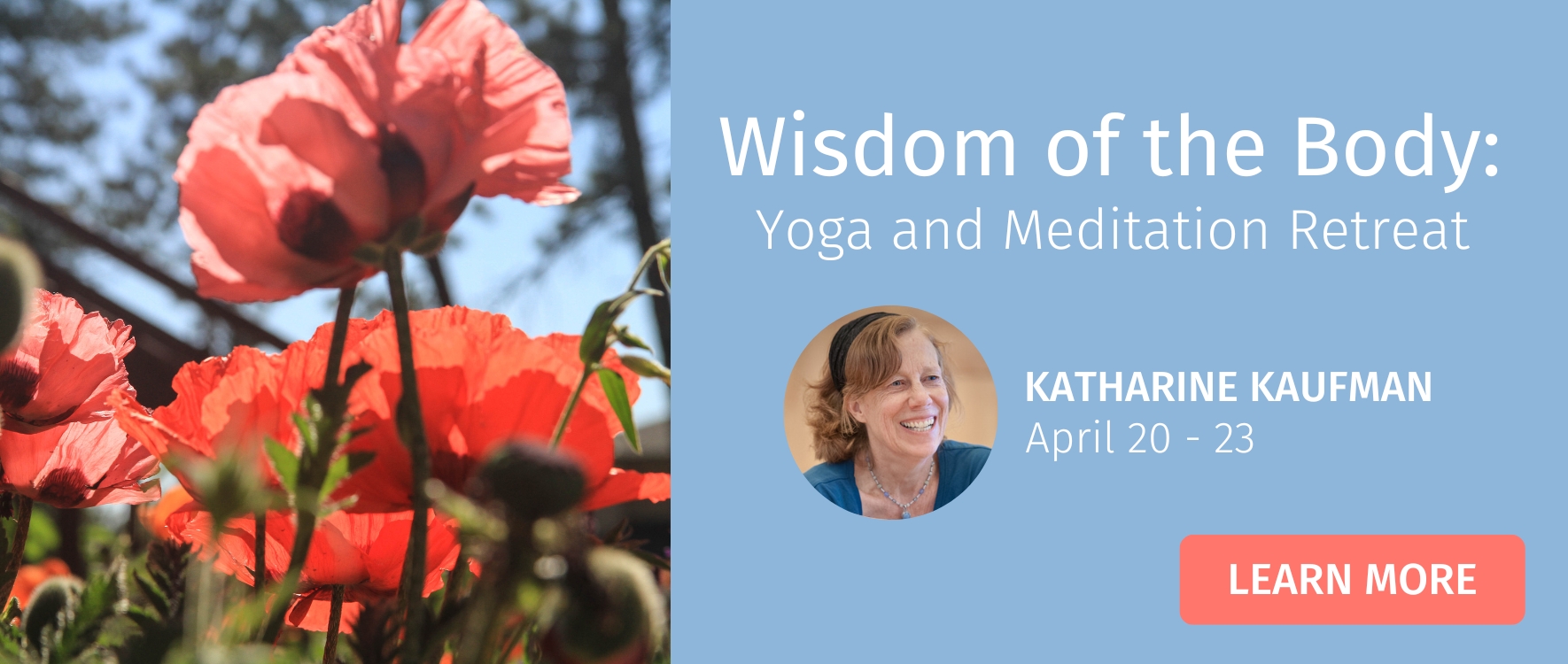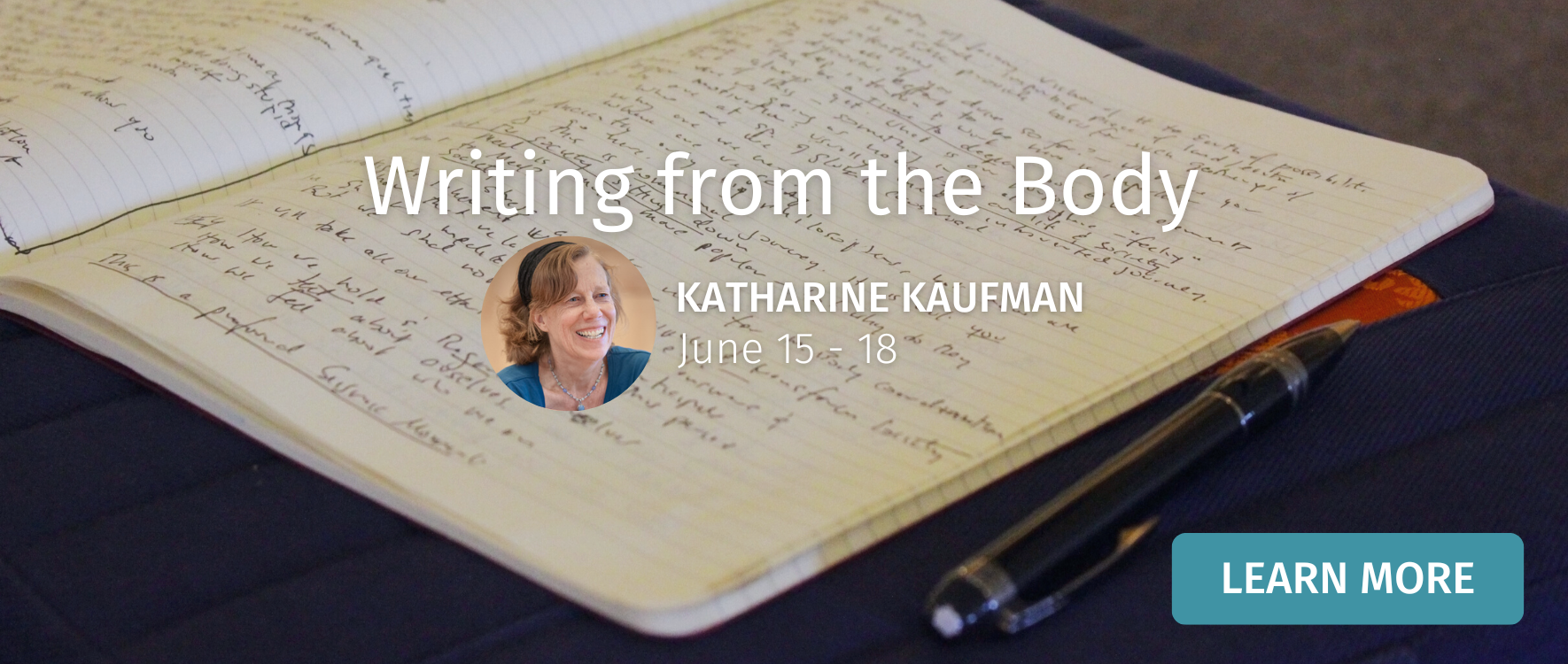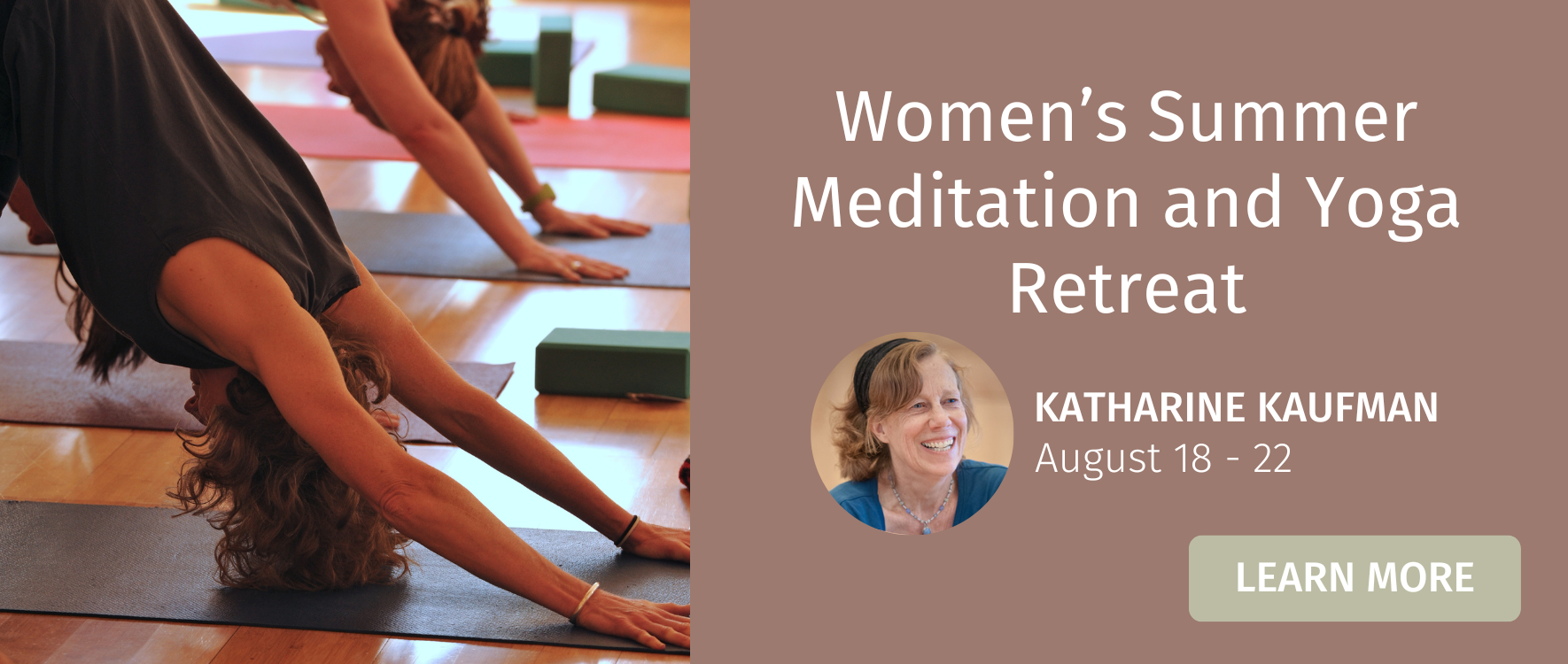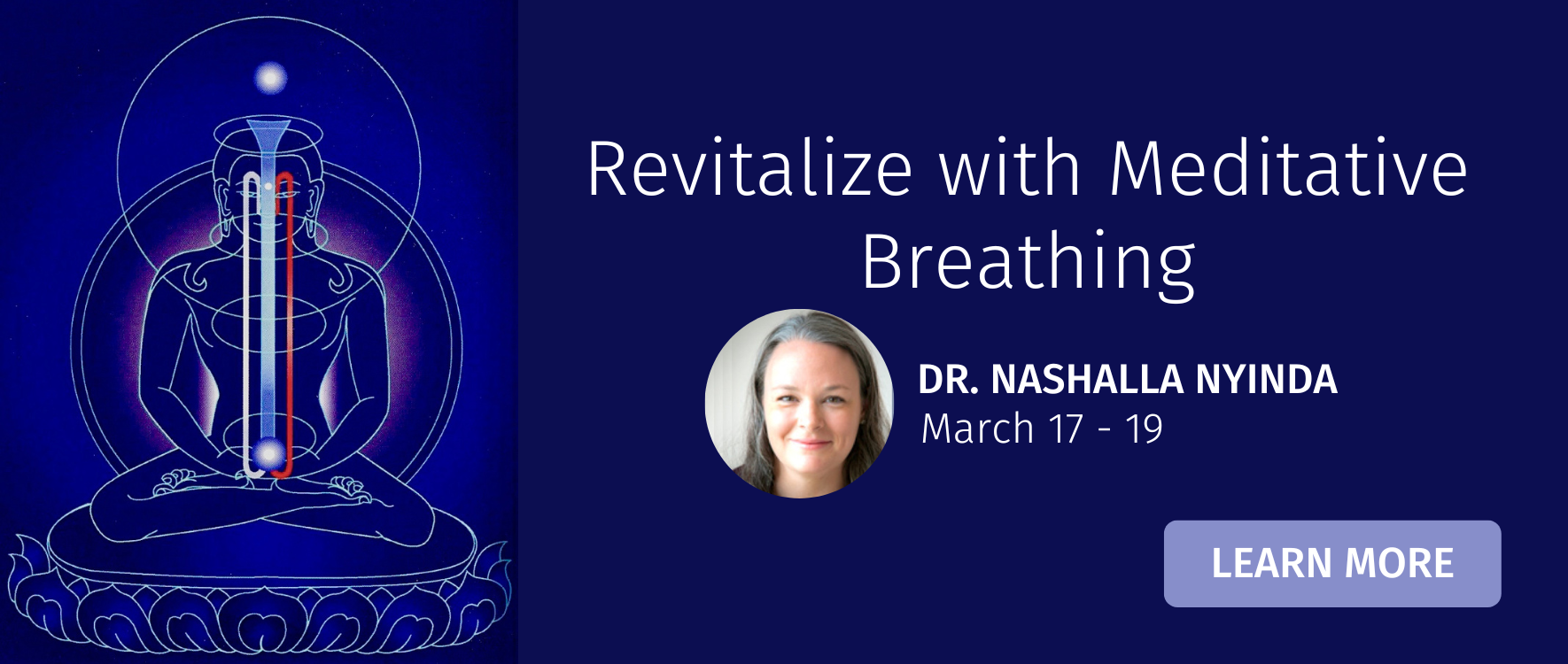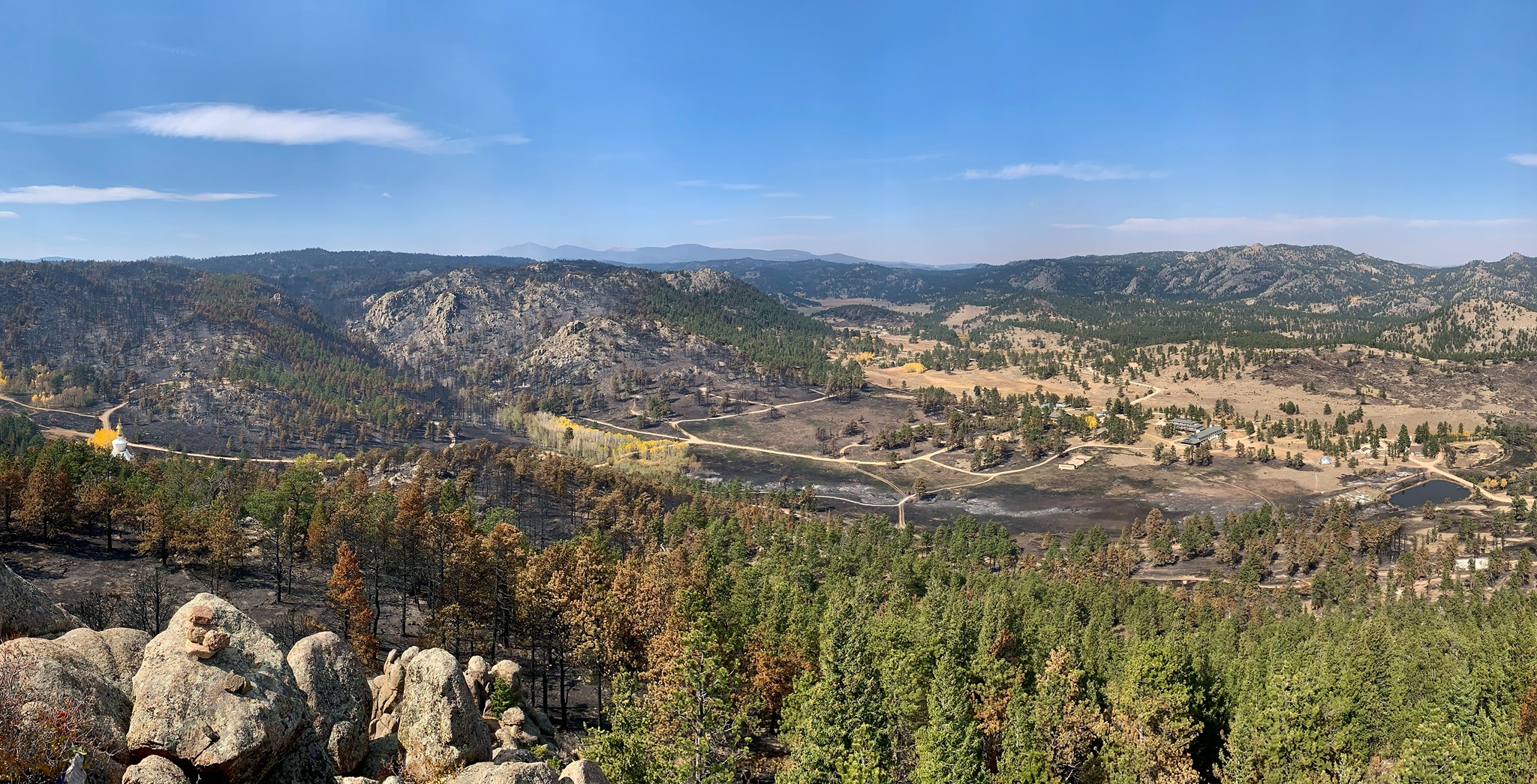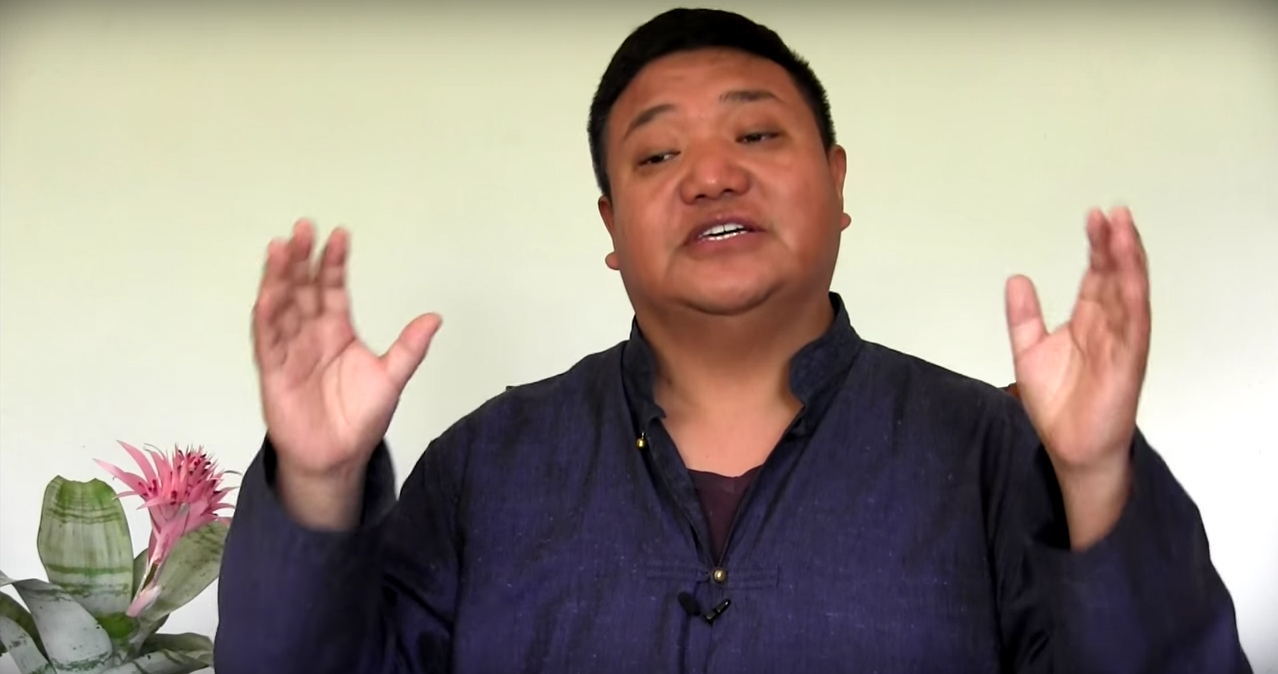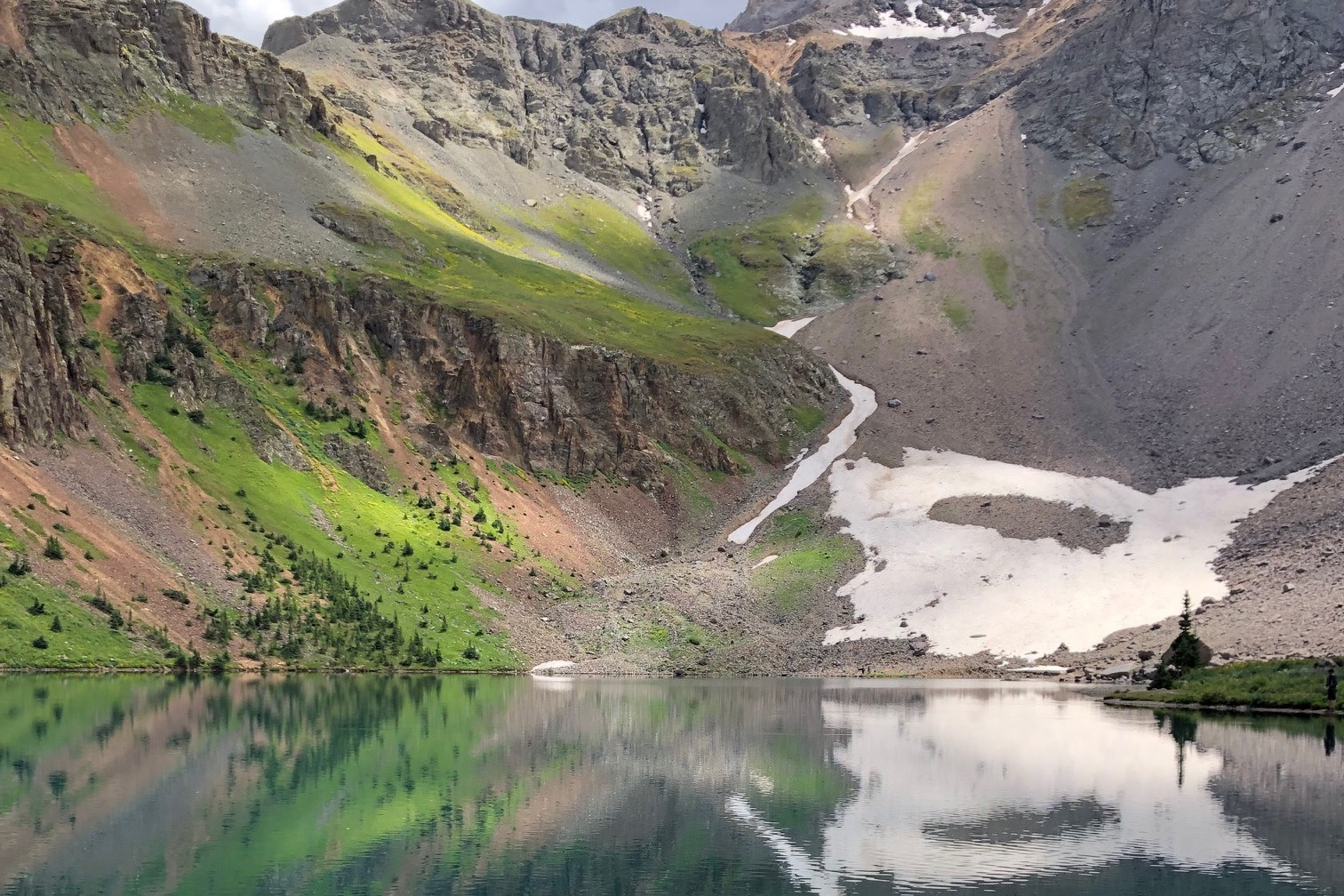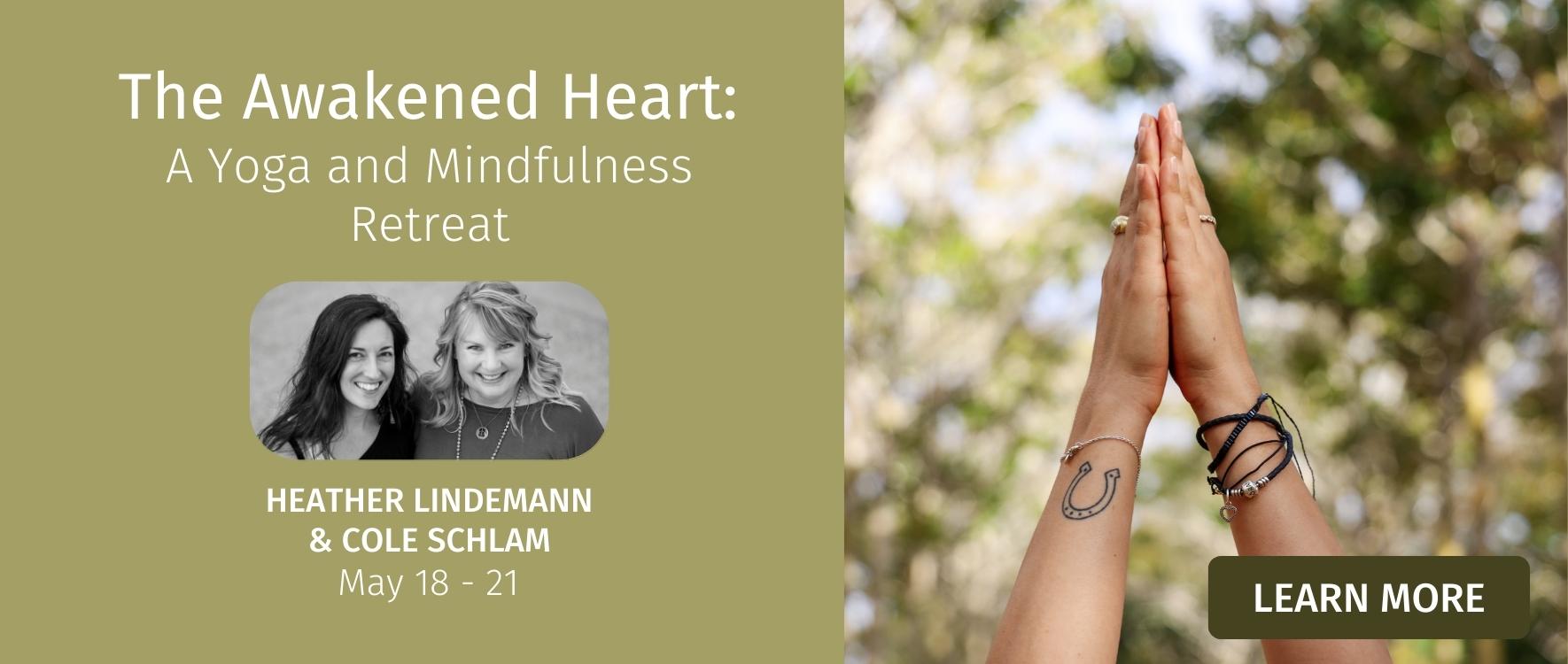Sadhana
by Katharine Kaufman
First there is a landing.
Then a letting go.
Then curiosity about what happens next.
You wake up. Somebody has made you breakfast. You go into the beautiful studio, and lie your mat down and you lie down on your mat. Maybe you need a chair. Maybe you’re exhausted. Maybe you’ve recovered from surgery or sickness this year and your balance is off. Or you have worked non-stop. Or you have lost your work. You yield.
Life on retreat is simple on purpose, so you have space to discover and cultivate your practice as it shows up now, in your body. Everything here at the Shambhala Mountain Center supports this. The teachers, staff, meals, schedule, the room you stay in, the stupa. The way the retreat is designed, from the opening welcome to the closing appreciation, supports you. What I mean to say is you are held by the balance of these things pointing in the direction of your practice. “Sadhana,” has many meanings ranging from formal personal practice to daily life. The word Sadhana is part of an ancient lineage. It holds you from the inside.
This is your solo retreat with other solos as well. We’re all supporting each other by showing up, with our limits, emotions, expectations, struggles and moments of joy.
It’s a generous situation. You are asked to check in with your own experience repeatedly. It’s not about pleasing someone else.
You’ve been on both sides: giving and receiving, so you already have that wisdom. Maybe there’s a tension from the concentration, and then some spontaneous joke erupts through the room and it’s extra funny. The relief after that. Or maybe it’s not a joke, but an insight.
“When did I forget how to know my own sensations?” someone quietly says.
Oh, that’s me, you think.
Your private self is supported. If you feel like stopping, you stop, lie down. You go out, get tea, sit outside for a while, and find your way back in. There are long gaps in the afternoon to rest, read, write, think, or go to the stupa, hike to the ridge, gaze into the distance, find another to walk with.
The practices are guided slowly so you can have room to continue to listen inside. The great Soto Zen teacher, Dogen Zenji says: “Not knowing is most intimate.”
You hold off making hard conclusions about the past or future so quickly. When it’s your body you can’t treat it like scrolling for a definition on your phone. You pause and wonder how you sense yourself, by the breath, pain, thought, emotions? And then something bubbles up. Oh, it’s my shoulder. OK. It’s the front of my neck, on the left side. Now my breath is tight. My eyes seem fixed, as if I’m still staring at a screen. But I’m looking at the horizon now, or another person. Could I soften my gaze? What does the shoulder want? How do I feel the ground. You can see how this inquiry needs to be more tender than you first imagine. Well, first you’ll stop, or maybe keep going, but smaller movements, and see how the shoulder feels now. Or maybe the thinking mind recedes a bit while you feel what you feel.
You are now experiencing what the habit of a practice can do for you. For a few days, the art of your practice is the main thing, whether it’s sitting or walking meditation, yoga, or discussion.
Toward the end you think of being home. Perhaps the question arises, What is my Sadhana? On a retreat the teacher or guide says, do this, do this. When you’re home you find yourself wondering what you want to do, or what needs another look.
Perhaps your Sadhana is something intentional, sit every morning, take a walk, rest next to a stream, pause under a tree (or at a traffic light waiting for the light to go green). Or perhaps you draw an outline of the farthest thing you can see or your dog or the tree outside the window and write a few words below.
You are surprised by something, a rush of birds. Maybe you are driving in town and see a couple walking down the sidewalk with matching coats, jeans, and the same slight slouch, hand in hand, and this touches you. It touches you because it’s tender and fleeting. You’re awake to the moment. You return to your next exhale. You could whisper to yourself, sadhana.
~o~
Join Katharine in 2023!
About the Author:
